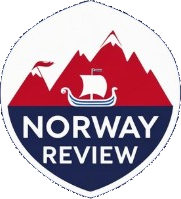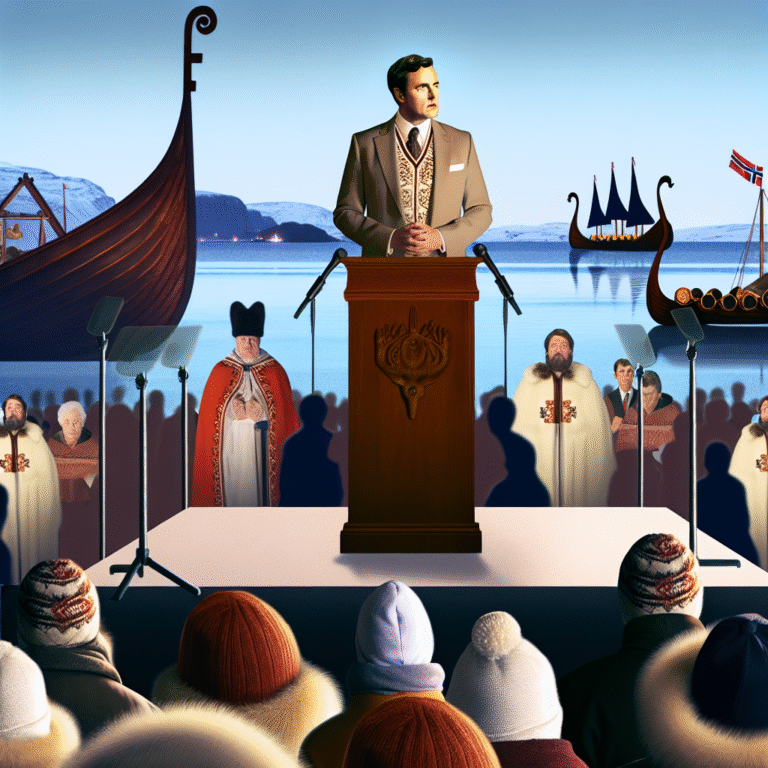A Troubled World and Norway’s Resilience: Insights from the King’s Speech
In an address that echoed through the hallowed halls of the Storting, Norway’s King emphasized the impact that global turmoil has on the Norwegian economy. The king noted the challenges posed by trade conflicts and rising prices, stating, “This troubled world affects our economy, businesses, and ultimately, the pockets of our citizens.” His remarks, delivered on behalf of the government, set a solemn tone for the official opening of the parliamentary session.
The historic Storting Hall was brimming with attendees on Saturday, as all 169 representatives donned their finest attire—84 of whom are joining the ranks for the first time.
In his speech, the King reassured the audience that the government is tackling these turbulent times with “safe governance.” He asserted, “Our goal is to create security for the future.”
This marked the 61st Storting opening he has presided over, a notable feat when considering that King Olav participated in similar ceremonies 58 times, according to archival records from the royal household.
Addressing Crime and Educational Challenges
Drawing attention to pressing social issues, the King warned of an alarming rise in crime, stating that organized crime poses a greater threat in Europe than ever before. “The police force is more engaged than ever in combating this age-old menace,” he emphasized.
Simultaneously, he pointed out significant challenges within the education system. While children today spend two additional years in school compared to 1990, their academic performance has suffered. “A key factor is that students are reading less,” he remarked with concern.
To counteract this trend, the government will launch a national initiative aimed at improving literacy, ensuring that every child reads at least one quarter every day. “The first teaching tool that children should bring home should be a book—not a screen,” he asserted passionately.
Proposed Reforms for a Better Future
The King’s address also outlined five major reforms intended to reshape various sectors in Norway:
- Establishing a tax commission to optimize the tax system.
- Forming a municipal commission to evaluate local governance and resource allocation.
- Setting up a health reform committee to explore new models for healthcare organization and financing.
- Creating a community school committee to assess the educational landscape over the next two decades.
- Introducing a police role committee to enhance the efficiency of law enforcement in fulfilling its societal duties.
He emphasized that these reforms are essential because Norway currently faces a labor shortage that hinders economic growth and presents staffing challenges in crucial sectors like kindergartens and elderly care.
The Støre government has set an ambitious goal to add 150,000 more individuals to the workforce by 2030.
A Glimpse of Optimism
Despite the challenges, the King took a moment to highlight the positive strides within the Norwegian economy. Over the past four years, an impressive 162,000 more people have joined the workforce. “Wages are outpacing inflation, providing citizens with better financial advice,” he observed.
He also acknowledged the resilience of Norwegian businesses, which are thriving with impressive profits and significant investments, while exports reach unprecedented heights. However, he cautioned that global conflicts, climate change, and ongoing wars continue to cast a long shadow.
Echoing a sentiment of unity, the King concluded his speech by underscoring the importance of collaborative efforts. “Together, we will guide Norway safely through these turbulent times. Together, we will continue to build and maintain a country characterized by minimal disparities, strong trust, and a sense of community,” he declared, formally opening Norway’s 170th Storting.
A Critical Response
However, the atmosphere following the address was not devoid of skepticism. Opposition leaders expressed their discontent, with Left Party leader Guri Melby asserting that the government has lost both momentum and direction. “This is a government that is easy to agree with but impossible to inspire,” she criticized.
Similarly, FRP leader Sylvi Listhaug described the speech as lacking depth, arguing it showcased a deficiency in vision. “Big words don’t equate to action. The government’s response to challenges seems limited to discussions and forming new commissions, but Norway needs decisive leadership,” she stated.
Opportunities for Collaboration
Conversely, Red Party leader Marie Sneve Martinussen felt the speech was somewhat overly ambitious but expressed readiness for cooperation. “We see many areas where collaboration is possible, including staffing in kindergartens, community development, and the preservation of nature—all crucial for maintaining a robust welfare state that supports everyone, including the elderly and the infirm.”
As the government gears up to present the upcoming state budget, negotiations are expected to take place with multiple parties including SV, the Center Party, Red, and MDG.
(© NTB)

